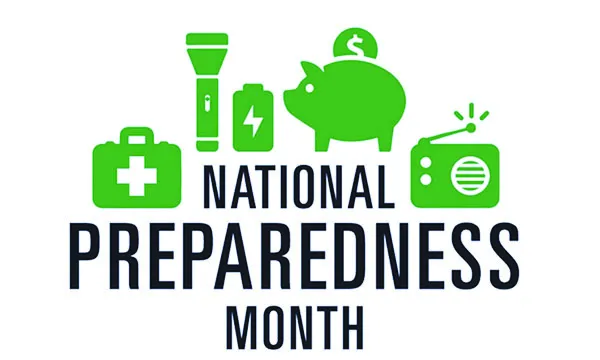There may be a time when you or your loved ones need to leave home quickly, due to a weather-related event or medical emergency. At times like this, seniors are often the most vulnerable. Seniors may rely on caregivers or have special medical needs, limited mobility, and/or vision and hearing impairments that can make a crisis situation even more worrisome. FEMA Administrator Deanne Criswell recently stated, “We know older adults can face greater risks when it comes to the multitude of extreme weather events and emergencies we now face, especially if they are living alone, are low-income, have a disability, or live in rural areas.”
However, there are some simple steps you can take now to prepare yourself and your family for a future emergency.
Prepare a “Go Bag.” A ready-packed bag can be very helpful when you need to leave home quickly. Include a written profile of your personal details: name, address, phone, two emergency contacts, doctors’ names and contact information, medication, and copies of insurance cards. Other items you may want in the Go Bag are: phone charger, hearing aid batteries, extra glasses, notepad and pen, snack/water bottle, pill dispenser with at least three days of medication, warm sweater or socks, and toiletries. Keep this Go Bag in one location (such as in the front hall closet), and let any caregivers know where it is and what is in it. Update your Go Bag frequently, so that the information and items enclosed stay current.
Organize important documents. Consider creating a file that includes information on all medical and home insurance plans, bank accounts, social security number, advance directives/living will, and records of passwords and PINs. Keep this is a locked/secure location in your home. You may need to access this file or take this file with you if you need to leave your home.
Designate your “people.” Organize a network of family, friends, and neighbors that can be counted on in case of emergency. Along with police and fire numbers, always keep their contact information by the phone in clear print, and stored in your mobile phone, so they can be called upon quickly. Make arrangements with a neighbor or nearby family member/friend to check in with each other on a regular basis and especially during bad weather.
Stock a survival kit for the home. Be prepared so you can stay safely in your home during inclement weather. Have standard items like flashlights, batteries, cell phone chargers, a first aid kit, blankets, and nonperishable food and bottled water in your pantry.
In case of wide-spread power outages that impact gas stations and ATMs, experts recommend you have cash on hand and a full tank of gas if you are able to drive. Again, make sure all prescription medications are consistently refilled and that you have enough medical supplies to last at least three days.
Clear a path. Keep hallways and entrances clear at all times so you can get out and others can get in. Wheelchairs, canes, and other mobility tools should be kept in accessible locations throughout the home, but NOT in front of doorways.
It can be unsettling to think that you or your loved one may be faced with an emergency, but it doesn’t have to be. The experts that organize National Preparedness Month remind us to “be prepared, not scared!” Prepare ahead of time and make it easier for yourself and your family to weather any storm.


